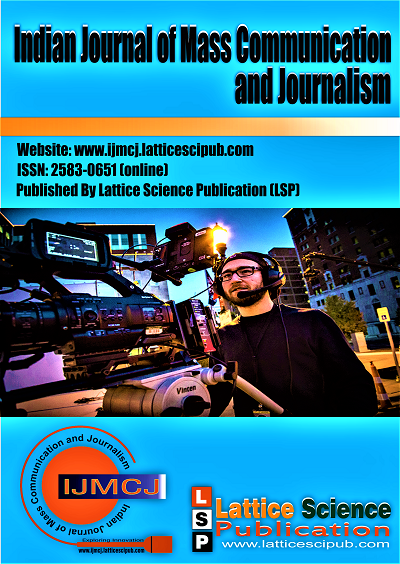Understanding the Meaning and Significance of Home-Schooling
Main Article Content
Abstract
The main objective of this research paper is to acquire an efficient understanding of home-schooling. Home-schooling is referred to when learning takes place within homes of the individuals. The educators are called within homes and they put into practice different types of teaching-learning methods in order to promote student learning. Furthermore, both educators and students need to possess satisfactory amount of teaching-learning materials in order to promote student learning. Furthermore, they need to make sure, the students are able to benefit from different types of instructional strategies. With the advent of technologies, the educators are making use of different types of modern, scientific and innovative methods and materials. These are facilitating in doing well in one’s job duties and generating desired outcomes. On the other hand, students need to ensure, they carry out their job duties and responsibilities in accordance to the expectations of their educators. In this manner, they will be successful in the achievement of different types of educational goals. Hence, it is understood on a comprehensive basis that home-schooling has been facilitating in augmenting information among students in terms of various types of academic subjects and lesson plans. One of the major benefits is, giving of personal attention by educators to the students is facilitating in achievement of different types of professional goals. Hence, in the present existence, the private tuitions are organized within homes. Therefore, home-schooling is in terms of one or more students. They usually feel comfortable, when they are working from the comfort of their homes. The main concepts that are taken into account in this research paper are, understanding the meaning and significance of home-schooling, measures to be put into operation in making home-schooling successful and advantages of home-schooling.
Downloads
Article Details

This work is licensed under a Creative Commons Attribution-NonCommercial-NoDerivatives 4.0 International License.
How to Cite
References
India. (2006). Retrieved June 20, 2024 from http://www.ibe.unesco.org/fileadmin/user_upload/archive/Countries/WDE/2006/ASIA_and_the_PACIFIC/India/India.pdf
Indian Educational System: An Overview of the Ancient Indian Education. (n.d.). Retrieved June 20, 2024 from http://content.inflibnet.ac.in/dataserver/eacharyadocuments/548158e2e41301125fd790cf_INFIEP_72/77/ET/72-77-ET-V1-S1__l_.pdf
Karpati, A. (n.d.). Teacher Training and Professional Development. Retrieved June 20, 2024 from http://econ.core.hu/file/download/greenbook/chapter8.pdf
Knowles, M.S. (1975). Adult Education: New Dimensions. Retrieved June 20, 2024 from http://www.ascd.org/ASCD/pdf/journals/ed_lead/el_197511_knowles.pdf
Malhoit, G.C. (2005). Providing Rural Students with a High Quality Education: The Rural Perspective on the Concept of Educational Adequacy. Rural School and Community Trust. Retrieved June 20, 2024 from https://www.ruraledu.org/user_uploads/file/Providing_Rural_Students.pdf
P.Caroline Cynthia , V. David Jeyabalan, ICT based Brain-Compatible Teaching in Adult Education. (2019). In International Journal of Innovative Technology and Exploring Engineering (Vol. 8, Issue 12S, pp. 459–462). https://doi.org/10.35940/ijitee.l1114.10812s19
Kapur, Dr. R. (2024). Understanding the Developments in System of Education within Rural Communities. In International Journal of Management and Humanities (Vol. 10, Issue 9, pp. 18–23). https://doi.org/10.35940/ijmh.j1714.10090524
Mwangi, P. N., Muriithi, C. M., & Agufana. (2022). Development of Educational Robotics Activities for Secondary School Students to Promote Interest in Engineering Career Path. In International Journal of Soft Computing and Engineering (Vol. 12, Issue 3, pp. 12–19). https://doi.org/10.35940/ijsce.c3580.0712322
Tatiana, K. (2020). Development of an Innovative Education System Mathematical Model. In International Journal of Engineering and Advanced Technology (Vol. 9, Issue 3, pp. 2080–2085). https://doi.org/10.35940/ijeat.c5189.029320
Sharma, P. (2023). Pedagogical Practices in the Technology Intervened Indian Education System. In Indian Journal of Social Science and Literature (Vol. 3, Issue 2, pp. 1–9). https://doi.org/10.54105/ijssl.k1632.123223





